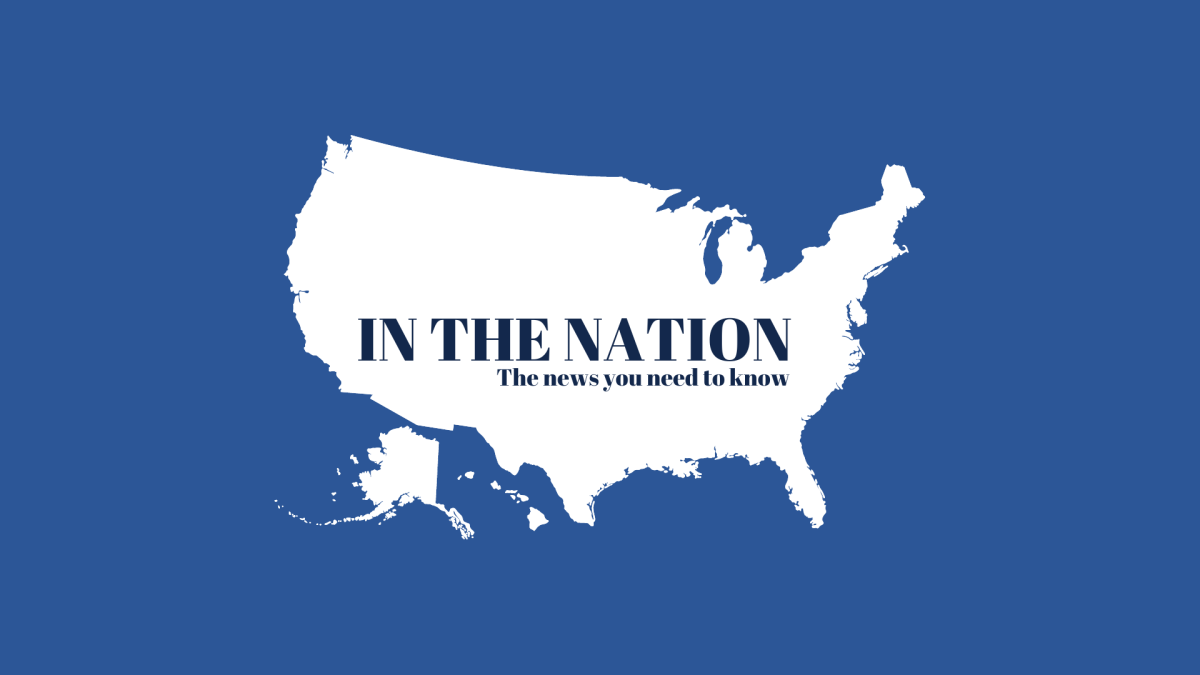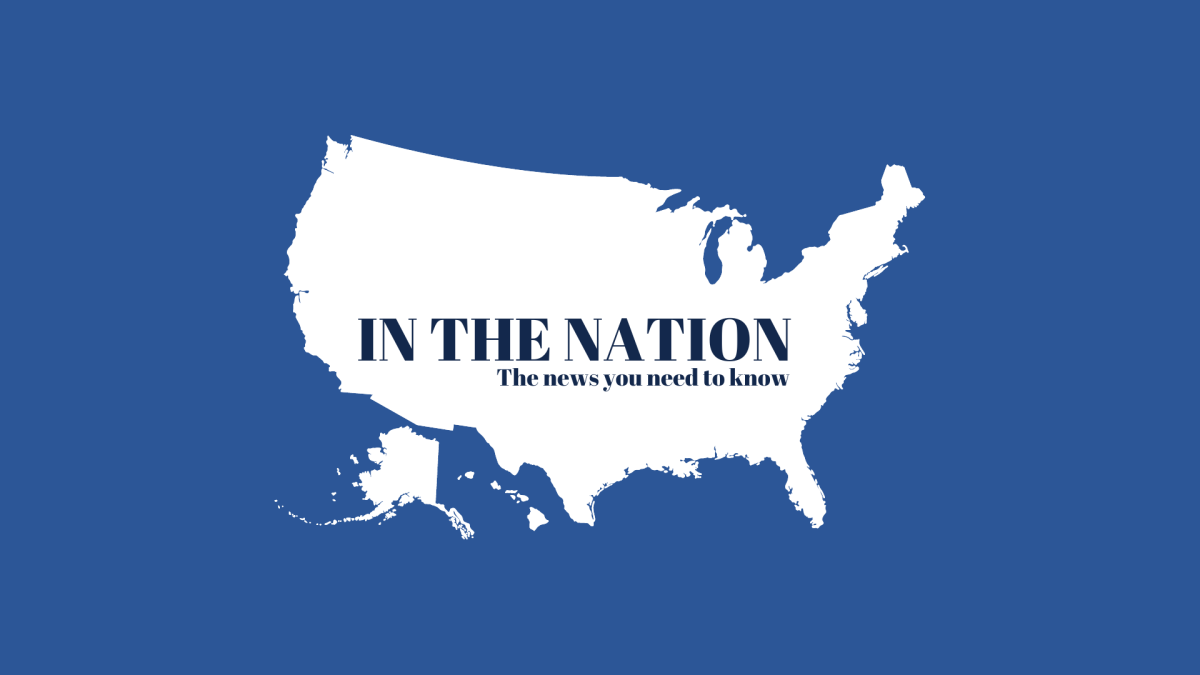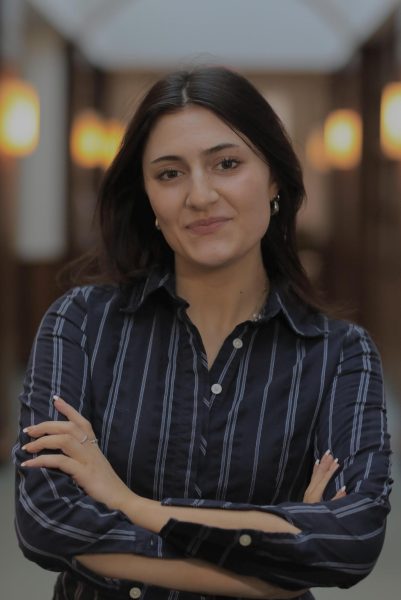Star-studded space crew reaches new heights in Blue Origin adventure
An all-female space exhibition launched by Blue Origin had a safe take-off and landing April 14, all in 10 minutes and 21 seconds.
The crew for the mission was made up of pop star Katy Perry, journalist Gayle King, aerospace engineer Aisha Bowe, social entrepreneur and civil rights activist Amanda Nguyen, film producer Kerianne Flynn and Jeff Bezos’ journalist fiancée Lauren Sánchez.
This group of women marks the first all-female group to go to space in 60 years. It marks the 11th flight journey that the New Shepard program has made.The star-studded crew was right above the Kármán line in the atmosphere roughly 62 miles above the Earth’s surface.
Perry brought a daisy with her from space, in honor of her four year old daughter, Daisy. She held it up to the camera that was livestreaming the journey.
King spoke of Perry singing a few bars of “What a Wonderful World” to the other mission members. Upon their return, Perry also mentioned that she plans to write a song about her experiences from this mission.
“It’s not about singing my songs, it’s about a collective energy in there,” Perry said to The New York Times after their return to Earth.
Upon their return to the Earth’s surface, Perry left the aircraft and knelt in the dirt, kissing it. King celebrated in a similar manner, also kissing the ground. King also thanked Jesus and Bezos upon her return.
Harvard sues Trump over federal funding freeze
The federal government said it is freezing the over $2.2 billion in grant money and $60 million in contracts to Harvard University April 14 after Harvard said it would not comply with demands from President Donald Trump’s administration.
Harvard is now the seventh school the administration has frozen federal funding for, and the sixth in the Ivy League. The administration demanded that Harvard ban face masks as well as change policies around speech and demonstrations on campus that would limit the time, place and manner of protests and demonstrations on the school’s campus. The Trump administration claims the demands are trying to curb antisemitism on campus. It also reportedly asked Harvard to eliminate all diversity, equity and inclusion programs, calling for the university to replace them with merit-based policies.
“The university will not surrender its independence or relinquish its constitutional rights,” the University said in a statement April 14. “Neither Harvard nor any other private university can allow itself to be taken over by the federal government. Accordingly, Harvard will not accept the government’s terms as an agreement in principle.”
In response, Trump, on Truth Social, called for the university to lose its tax-exempt status in addition to the freeze in federal funding for refusing to comply with demands from his administration.
Harvard has an endowment fund that exceeds $50 billion, so the Trump administration pausing federal funding likely won’t hurt the university in the short term. Residents of the area and members of the Harvard community held a protest over the weekend against the Trump administration because of its position against Harvard.
The American Association of University Professors also filed a lawsuit against the Trump administration, claiming that they did not follow required guidelines under Title VI of the Civil Rights Act that bars discrimination based on race, color or national origin in programs that receive federal money. Such steps include giving notice of federal cuts to both the university and Congress.
Discussion continues with El Salvador’s president over deportation ‘administrative error’
President Donald Trump met with El Salvador’s President Nayib Bukele in Washington, D.C. April 14 to discuss deportation procedures that El Salvador is crucially involved in.
El Salvador is hosting deported migrants from the United States in prisons as part of Trump’s larger goal to rid the country of people here illegally.
Early in April, Trump asserted his ability to use the Alien Enemies Act to deport immigrants suspected of being gang members, sending large swaths of people out of the country on planes. On board a 238 person deportation flight was a Maryland man, Kilmar Abrego Garcia, who was mistakenly deported on the flight due to an “administrative error,” according to the government.
Steps have been taken by the Supreme Court to demand the Trump administration return Abrego Garcia back to the U.S., where he lived under protected legal status with a wife and child.
The Trump administration has been instructed by the Court to facilitate Abrego Garcia’s safe return, but Attorney General Pam Bondi has claimed that because Abrego Garcia is in El Salvador, his status is an issue of “foreign affairs.” She also said that the U.S. would find a plane to return Abrego Garcia if El Salvador’s government allowed his release.
Bukele spoke to reporters in the Oval Office during a press conference, saying he had no power to send Abrego Garcia back to the U.S.
“Of course I’m not going to do it. It’s like, I mean, the question is preposterous. How can I smuggle a terrorist into the United States? I don’t have the power to return him to the United States,” said Bukele.
Abrego Garcia allegedly had ties to the MS-13 gang in El Salvador according to a confidential informant obtained by the Trump administration, but he has not been charged with any gang-related crimes. Lawyers for Abrego Garcia deny these allegations.
In the press conference, Trump asked Bukele to build more prisons to house migrants, “as many as possible.”
Despite the Supreme Court ruling he must be brought back to the U.S., no plans to return Abrego Garcia have been set in motion.
‘Illegal monopoly:’ Meta anti-trust lawsuit begins with Zuckerberg on the stand
Mark Zuckerberg’s Meta is under fire in a major antitrust lawsuit that puts the company’s assets in hot water. The Federal Trade Commission and Meta have been in court since April 14.
Zuckerberg is at odds with the FTC over whether or not the social media conglomerate is a Monopoly, with its ownership of WhatsApp, Facebook and Instagram. The case brought by the FTC was originally slated in 2020, but the judge did not accept the original case’s validity. An amended version of the case is what is being presented this year.
The FTC alleges that Meta is illegally monopolizing the social media market.
Prosecutor Daniel Matheson believes Zuckerberg purchased Instagram because of its competitive edge against his Facebook. Matheson mentioned that Zuckerberg had previously referred to the platform as a “rapidly growing, threatening, network.” Meta, known as Facebook at the time, purchased Instagram in 2012 for $1 billion.
Zuckerberg defended his position on the purchase as the first to take the stand in the case. He said he acquired the company to improve it as a product, which was information available to the prosecution in documents.
The FTC does not consider X, iMessage, Google products or TikTok as direct competitors to Instagram and Facebook, where it does consider the two social platforms to be competitors with each other. This narrows the competitor window, making the two platforms the only companies filling the specific photo-sharing app niche to be competitors according to the FTC.
Meta contradicts this idea, saying in a statement that the company is evidently rivals with other top media companies communication options and photo-sharing applications.
“The evidence at trial will show what every 17-year-old in the world knows: Instagram, Facebook and WhatsApp compete with Chinese-owned TikTok, YouTube, X, iMessage and many others,” the statement said.
A memo Zuckerberg had sent in 2018 also surfaced, where he alluded to spinning off the other apps into a different entity, worried that antitrust concerns may surface.
“Over time we may face antitrust regulation requiring us to spin off our other apps anyway,” the memo read.
If the FTC is able to win their case, a process will be set in motion to force Meta to sell assets that determine it as a monopoly over photo-sharing social media platforms.














